One never expects to receive anything of interest in the U.S. mail, but the other day brought a wonderful surprise. My cousin Anna Abbruzzese came across some old family photos, and sent me a portrait I’d not seen before of my grandmother, Angela, who was her father’s sister. My father lived with Anna and her family in Cohasset, Massachusetts, and she has fond memories of my father at nineteen, newly arrived from Italy, lying on the floor coloring with her when she was a little girl.
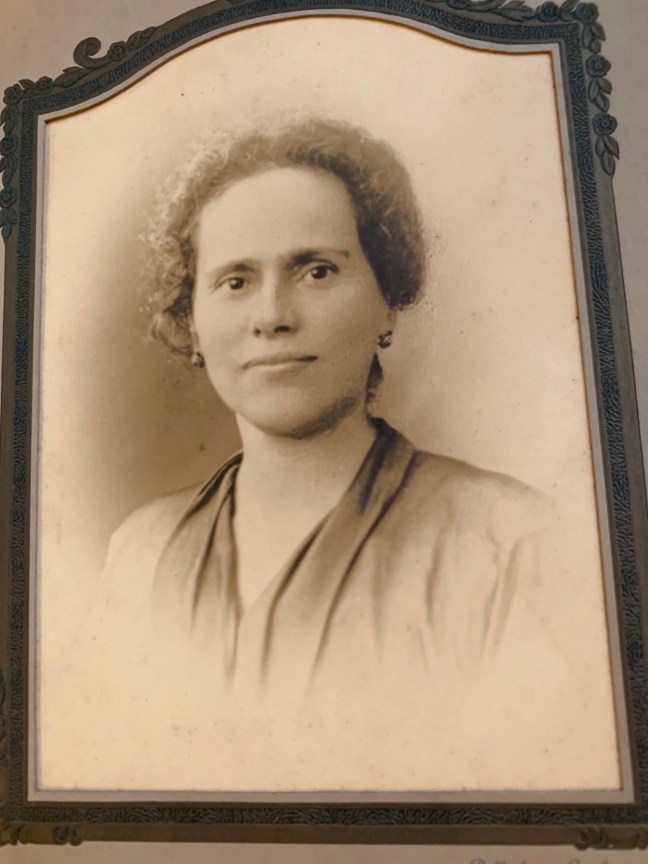
My grandmother must have been extraordinary for her time. She left her town of Gaeta for higher education, which must have been incredible for a young woman in the early 1900s in Italy. My father believed she may have been the first — male or female — to leave Gaeta to go to college.
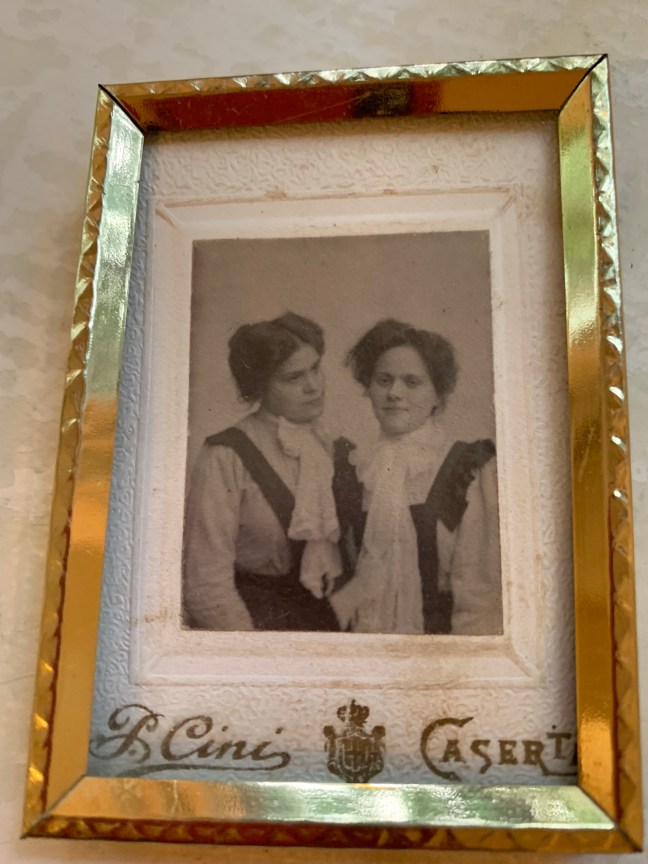
She returned to Gaeta to become the town’s elementary school teacher, La Maestra Angelina. My father reported that she was heartsick that many of her brightest students, so quick doing arithmetic in their heads, were forced to leave school at 10 or 11 to work in the fields to help support their families. When we returned as a family to Gaeta in 1965, former pupils still remembered and spoke of La Maestra Angelina.
As was the custom there, my grandmother went on to marry her first cousin, who was by all accounts eccentric, to put it in its most positive light. There has never been a sadder looking bride in the wedding photos. Luckily for her, my grandfather spent most of his time in the U.S., so she had the pleasure of sharing a home with her sister Clara, who had lost her husband at sea in World War I, and raising her sons alongside Clara’s.
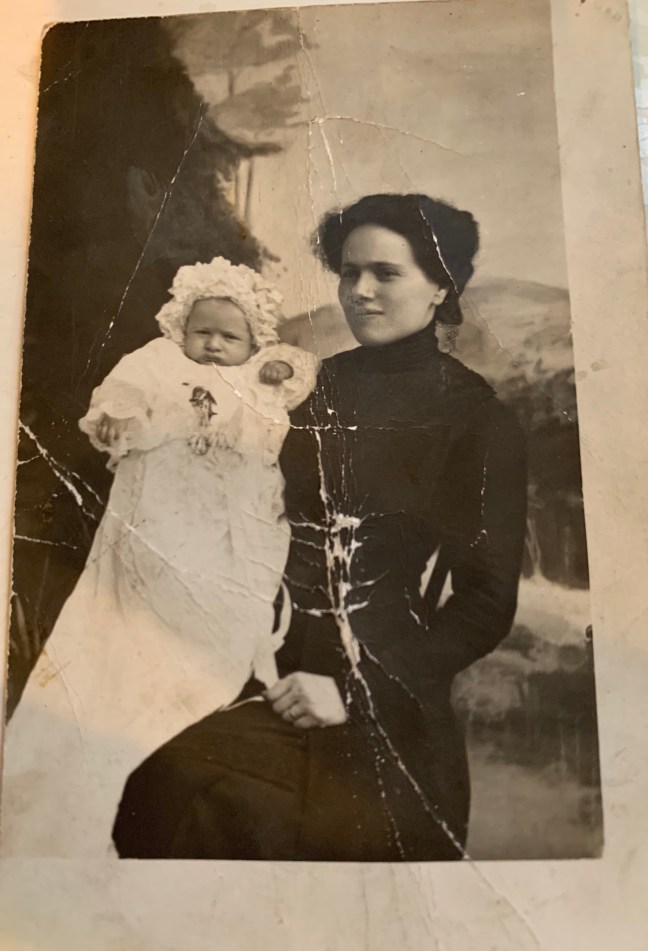
Tragically, my grandmother died in an influenza pandemic in 1934, when my father was only 14. His Aunt Clara continued to care for him until she took him 100 miles to Rome in 1939, when war was declared, and arranged for him to emigrate to America to avoid being drafted into Mussolini’s navy, where he would surely have perished with his poor vision. One can only imagine the determination and fortitude it took for a solo woman from a small town to make that happen.
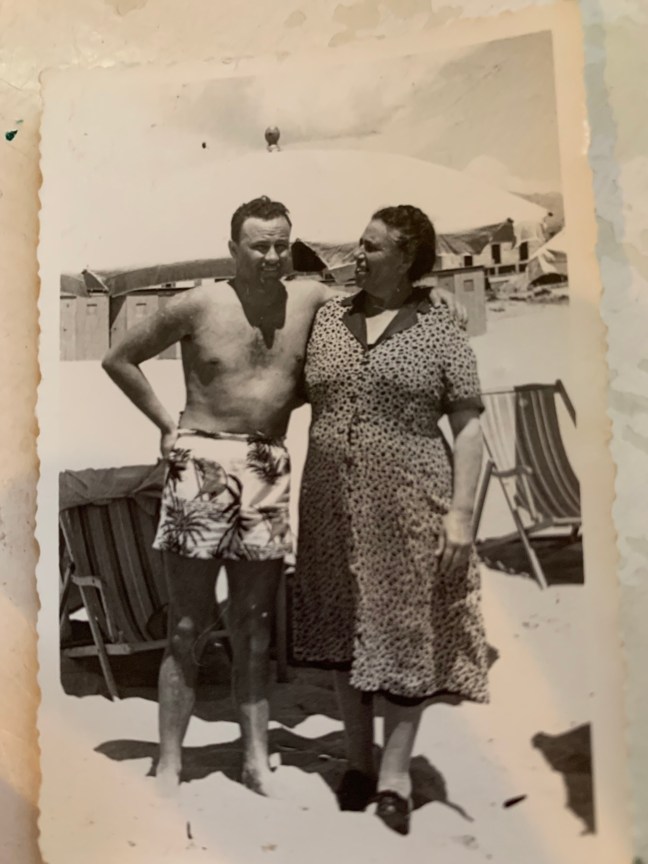
No one, then or now, would use the word feminist in describing these two women, but if not them, then who?
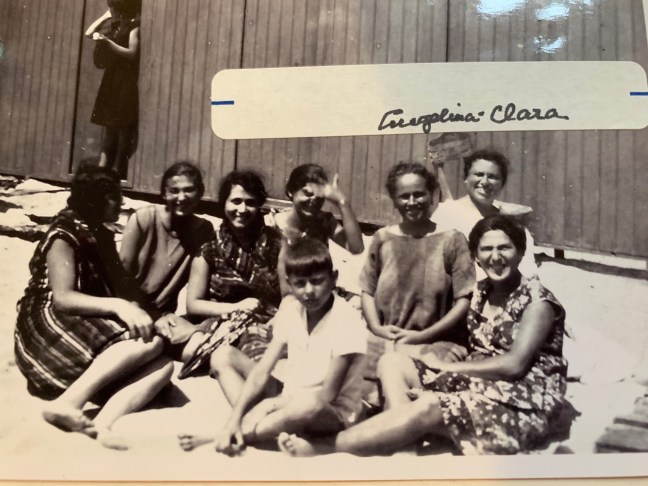


This is a wonderful post!
Sent from my iPhone
>
LikeLike
A truly wonderful piece about an amazing member of la tua famiglia.
LikeLike
Mi sono piaciuta molto questa storia!
LikeLike
Amazing women in your family! and the tradition continues!
LikeLike
This is such a great post. Incredible photos!
LikeLike